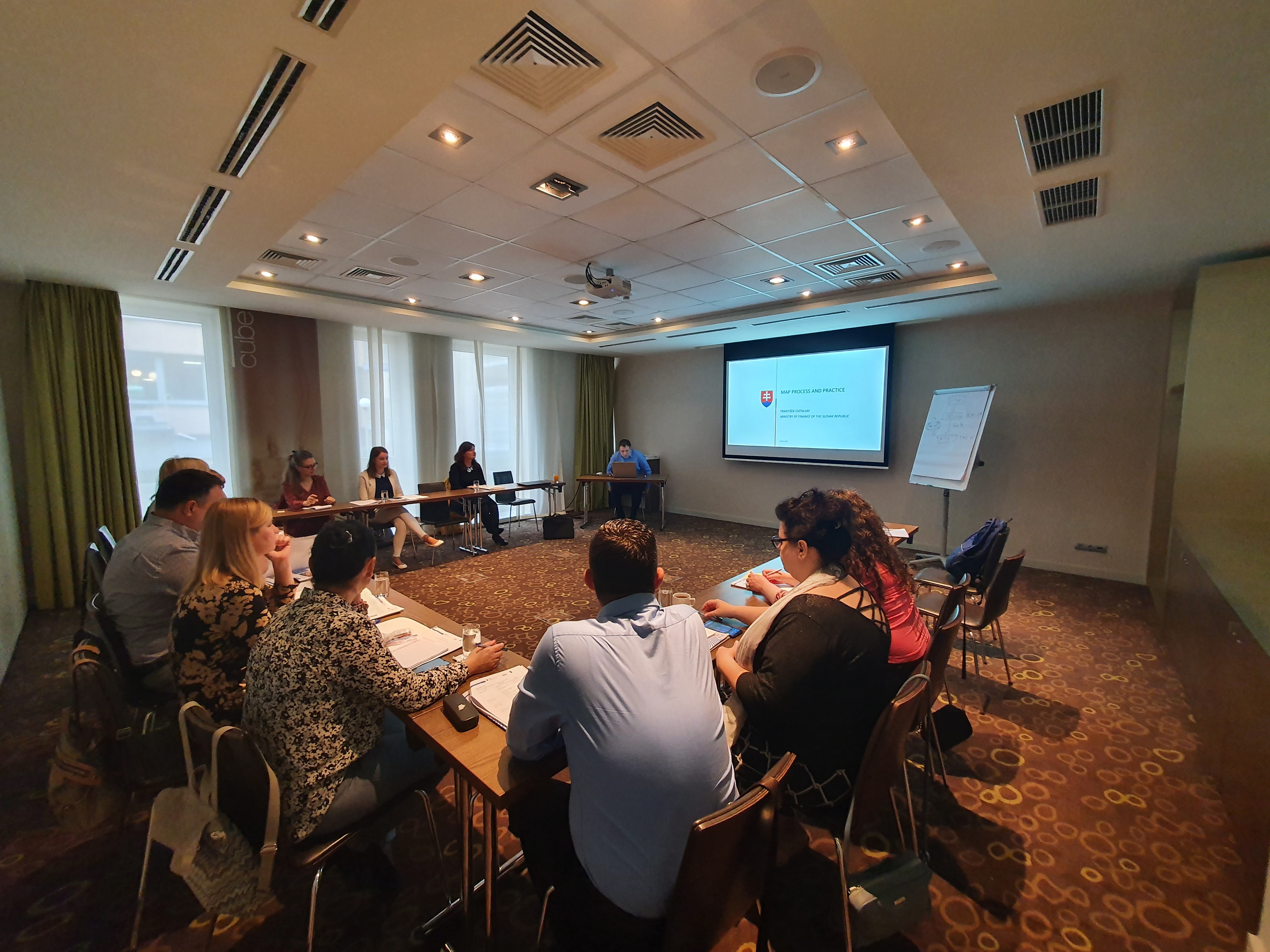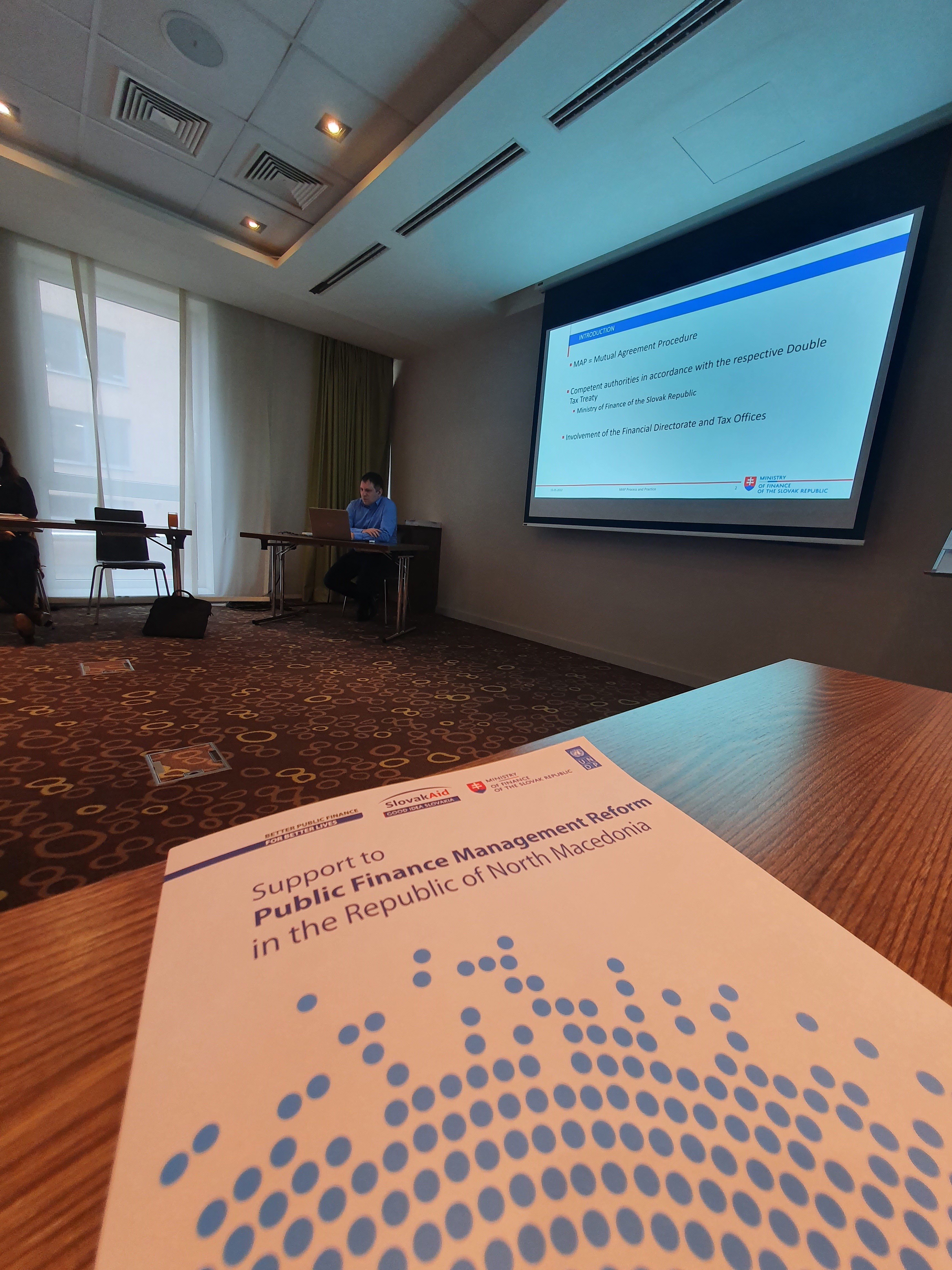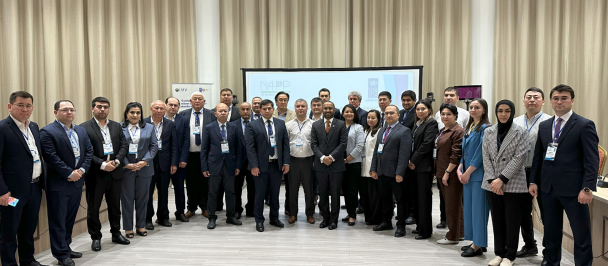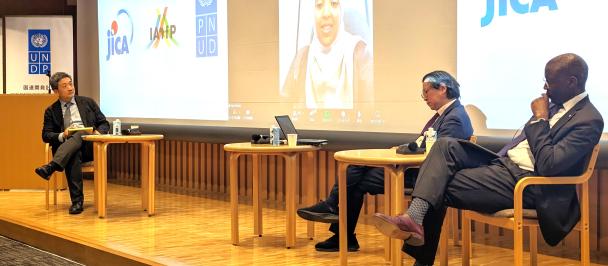Slovakia and North Macedonia discuss transfer pricing best practices
June 7, 2022

The Study Visit took place in May 2022
Public officials from North Macedonia learned about best practices in transfer pricing from Slovakia during a study visit that took place in May 2022 in Bratislava.
Slovakia has rich experience with tax administration processes. Representatives of the Public Revenue Office and the Ministry of Finance from North Macedonia came for a study visit to learn about the latest developments in transfer pricing legislation at the international level. Additionally, they learned about the key features and steps of the comparability analysis process in Slovakia, and practical experience from advance pricing agreements. Various case studies were discussed during the study visit to help North Macedonia make progress in transfer pricing and tax audits.
“The Republic of North Macedonia has made considerable progress in developing detailed legislative provisions on transfer pricing, however there are still very limited capabilities within the institutions to deal with these issues. With the UNDP support, tax officials are being trained on dealing with audits of every type of tax. We at UNDP believe that efficient tax systems are crucial for sustainable development and inclusive growth, thus it makes us proud to support North Macedonia in strengthening the effectiveness of its tax policies. We look forward to continuing our support for stronger national tax system”, says Biljana Cvetanovska Gugoska, Head of the Democratic Governance Unit in UNDP North Macedonia.
Transfer pricing is a specific part of taxation. This is a process to ensure a fair distribution of transaction income between related companies, most of which are domiciled abroad. The basic questions it poses are how to set rules for fair taxation and bring the income from international transactions back to the country of origin. Some general rules are already in place in North Macedonia as the country adopted legislation on transfer pricing in 2019. However, its implementation remains a challenge. “Macedonian colleagues still need to gather more experience, especially with conducting transfer pricing tax audits. By using special techniques like on-the-job trainings, we can see huge progress in this field,” says Silvia Karelová, one of the lecturers from the Financial Administration of the Slovak Republic.

The method of on-the-job training allowed participants to present real cases of tax audits they carried out in North Macedonia. In this way, lecturers could propose what to do better in tax audits they are conducting right now. Slovakia also presented several audit cases. An international expert from the Financial Administration of the Slovak Republic, Vivien Albertová, was quite positively surprised by the participants’ interaction: “They were active in the sessions and asked really challenging questions in relation to the most pertinent issues of the transfer pricing processes. Thus, I believe that this study visit and the experience we’ve shared with them has been of paramount importance and they will ideally use it in practice.” North Macedonia has already set up a specialized team of tax auditors to carry out the tasks related to transfer pricing. “I hope they will focus on more complicated cases. At this stage, they are just at the beginning and will need more practice, but I hope they will become experts in this field very soon,” concludes Ms. Karelová.
The study visit was organized as part of Support to Public Finance Management Reform in the Republic of North Macedonia project that is implemented within Public Finance for Development programme, a joint effort of the Slovak Ministry of Finance and UNDP.

 Locations
Locations



